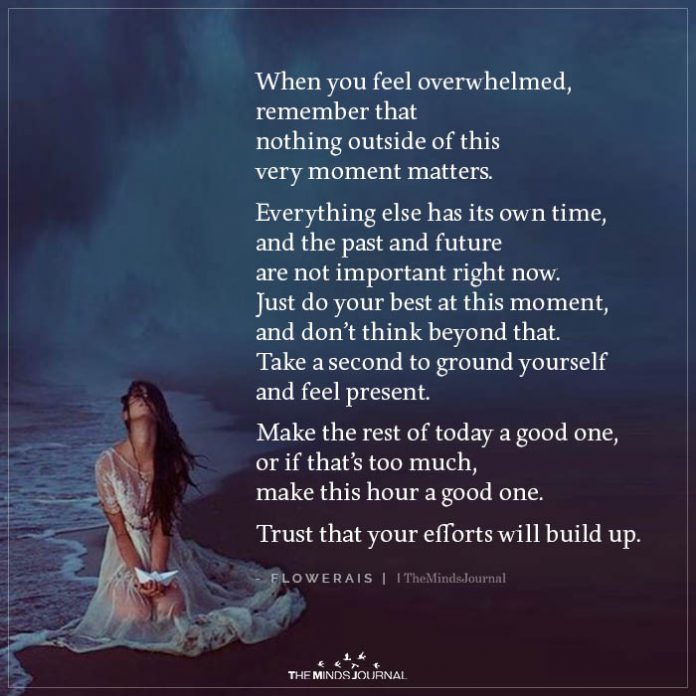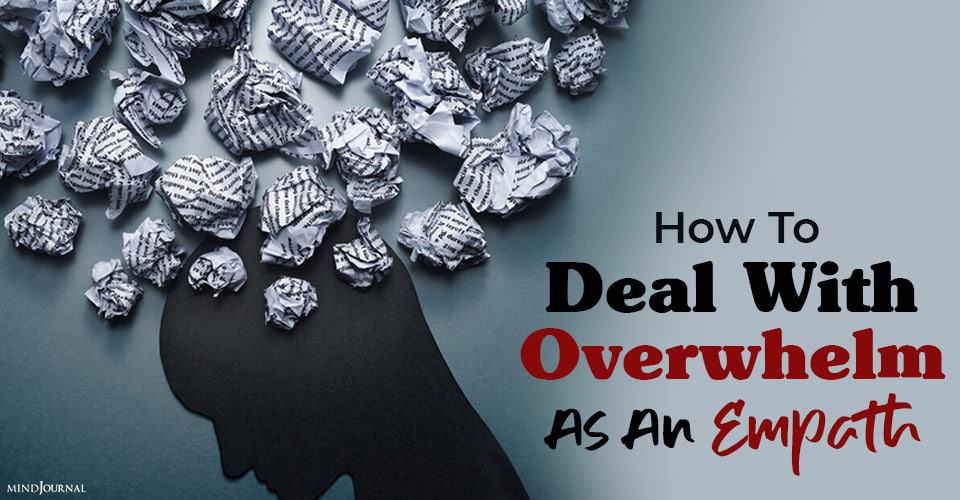As an empath, if you have always struggled to deal with overwhelm, then the good news is that there are some effective techniques that can help you change that.
Learning to deal with feeling overwhelmed is an essential part of an empath’s tool kit.
The secret to reducing overwhelm is to notice it quickly. Many empathic patients have come to me saying, “I’ve felt overwhelmed for years.” They live in the persistent, uncomfortable state of sensory overload or else have become exhausted, burned out, or sick. Happily, you don’t have to let this experience get the best of you.
Each day, treat yourself with kindness. If too much is coming at you too fast, make time to decrease stimulation. Notice when you first start feeling overwhelmed. Did a colleague or family member ask too much of you? Did you overcommit yourself?
Most importantly, catch the feeling as fast as you can before it gathers momentum. Then take at least a few minutes to unplug from stimulation. I often retreat to a room without sound or bright light. I rest or meditate to recalibrate myself to a more balanced state. You can use these strategies too.

When you are feeling overwhelmed or if your thoughts are scattered, practice this visualization from my book “Thriving as an Empath: 365 Days of Self-Care for Sensitive People” to center yourself:
Red Rock Canyon Visualization
Take a few deep breaths. Relax your body. If thoughts intrude, keep breathing deeply and let them float by like clouds in the sky. Do not attach to them. Let the rhythm of your breathing help you completely settle into your body.
Picture yourself walking in a huge, majestic, red rock canyon filled with all shapes and sizes of noble stones and boulders. Some are thousands of years old, strong, wise, and omnipresent. It’s a beautiful day with the perfect temperature, just right for you to wander around this enchanted place. Notice which rock formations you are drawn to.
Related: 5 Ways to Stop Empath Overwhelm
Then, place your palms or your entire body on them. Feel their strength and let them ground you. You can sit on a boulder, too, to feel its stability, warmth, and sustenance.
Let the grounding life force of this canyon and all its natural stone formations bring you back to center and in touch with your highest, clearest self
Set your intention. To prevent or decrease overwhelm, I will plan short or longer periods to reduce external stimulation. I will visualize the red rock canyon of wonder when I want to ground myself. I can go there whenever I like. It is always welcoming my return.
(Adapted from “Thriving as an Empath: 365 Days of Self-Care for Sensitive People)
https://drjudithorloff.com/thriving-as-an-empath/
Written By Judith Orloff Originally Appeared In Dr. Judith Orloff









Leave a Reply